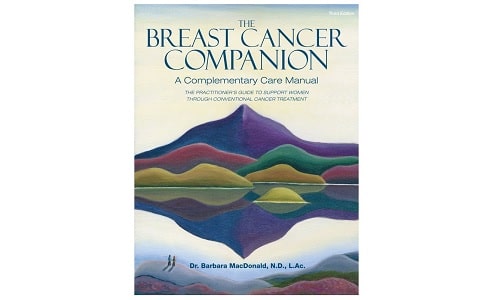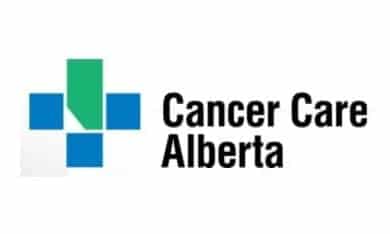Are you a health professional?
Clinical practice guidelines for professionals
Reducing risk of complications with surgery
Some practices may reduce risk of complications. First, assess all choices and optimize risk factors, including patient characteristics and their status of adjuvant therapy, such as radiotherapy and chemotherapy.2Ooi A, Song DH. Reducing infection risk in implant-based breast-reconstruction surgery: challenges and solutions. Breast Cancer: Targets and Therapies. 2016 Sep 1;8:161-72. Because half of infections occur more than 30 days after a procedure, implement a plan for follow-up care, including appointments and phone calls.
Reduce suppression of the immune system induced by surgery and anesthesia:3Cho JS, Lee MH et al. The effects of perioperative anesthesia and analgesia on immune function in patients undergoing breast cancer resection: a prospective randomized study. International Journal of Medical Sciences. 2017 Aug 18;14(10):970-976.
- Use regional anesthesia and IV propofol as the primary anesthetic when possible
- Provide adequate pain control throughout the surgical experience while minimizing the use of opioids such as morphine, oxycodone, or codeine.
- Avoid or minimize the need for opioids during or after surgery by using an intravenous propacetamol and anti-inflammatories such as ketorolac while in the hospital and then using oral anti-inflammatories such as ibuprofen or naproxen after discharge.
- Avoid hypothermia by maintaining core body temperature devices such as fluid warmers and external body warmers.
National and regulatory guidelines recommend that patients eligible for reconstruction be counseled on the association of breast implants with subsequent anaplastic large cell lymphoma (ALCL) as part of routine informed consent.4Nationally Comprehensive Cancer Network. NCCN clinical practice guidelines in oncology. breast cancer. June 18, 2022. Viewed December 9, 2022; Food and Drug Administration. Breast implants—certain labeling recommendations to improve patient communication. September 2020. Viewed December 9, 2022. A very large observational study found that “although the relative risk [ALCL] is significantly increased, the absolute risk remains extremely low.” The study found excess risk at 11.6 cases per million persons per year.5Kinslow CJ, DeStephano DM et al. Risk of anaplastic large cell lymphoma following postmastectomy implant reconstruction in women with breast cancer and ductal carcinoma in situ. JAMA Network Open. 2022 Nov 1;5(11):e2243396.
Finally, remove catheters and drains as soon as possible, and use antibiotic prophylaxis.
Helpful links on reducing risk of surgical infection
- Retsky MW, Demicheli R (Editors). Perioperative Inflammation as Triggering Origin of Metastasis Development. 2017.
- Hiller JG, Perry NJ, Poulogiannis G, Riedel B, Sloan EK. Perioperative events influence cancer recurrence risk after surgery. Nature Reviews. Clinical Oncology. 2018 Apr;15(4):205-218.
- Horowitz M, Neeman E, Sharon E, Ben-Eliyahu S. Exploiting the critical perioperative period to improve long-term cancer outcomes. Nature Reviews. Clinical Oncology. 2015 Apr;12(4):213-26.
- Pantziarka P, Sukhatme V, Bouche G, Meheus L, Sukhatme VP. Repurposing Drugs in Oncology (ReDO)-diclofenac as an anti-cancer agent. Ecancermedicalscience. 2016 Jan 11;10:610.
Racial disparities in breast cancer
Residual tumors from Black patients with estrogen receptor–positive/HER2-negative primary breast cancer treated with neoadjuvant chemotherapy had a higher risk score associated with a biomarker of distant metastatic recurrence compared with tumors from White patients in a mid-sized observational study.6ASCO Post Staff. Study finds racial disparity in prometastatic tumor microenvironment among patients with residual breast cancer after neoadjuvant chemotherapy. ASCO Post. December 6, 2022. Viewed December 9, 2022.
Helpful links for professionals
This is an excellent guide for oncology naturopaths caring for people with breast cancer. Dr. Barbara MacDonald provides guidance on natural approaches to consider across the spectrum of breast cancer: reducing inflammation; support through surgery, including wound healing; preventing recurrence and monitoring after conventional treatment is completed. See these sections in particular:
Chapter 1, section 2.1.4, Inflammation
Chapter 2, section 2, Diagnostic Tests and Surveillance Tests
Chapter 4, Preparing for Surgery
Chapter 9:
- Section 3, Monitoring while in Remission
- Section 5, Recurrence Prevention Strategies
- Section 6, Classical Naturopathic Treatment of Breast Cancer Survivors
- Section 7, Post-treatment Laboratory Testing
Appendix
- Appendix 1: Genomic Testing for SNPs
- Appendix 2: Preparing for Surgery Patient Handout
- Appendix 3: Immune Modulating & Anti-Cancer Agents by Action
- Appendix 5: Patient Anti-Inflammatory Diet Handout
- Appendix 6: Patient Handout: Use Foods and Beverages to Heal Your Body
- Appendix 7: Patient Instructions: Hydrotherapy: Castor Oil Pack
- Appendix 8: Patient Instructions: Hydrotherapy: Warming Socks Treatment
Lemanne D, Maizes V. Advising women undergoing treatment for breast cancer: a narrative review. Journal of Alternative and Complementary Medicine. 2018 Sep/Oct;24(9-10):902-909.
Clinical Pearls. Cancer Strategies Journal. 2013 Spring:8-9. See Niacinamide and triple negative breast cancer.
Breast cancer treatment in older women
- Savard MF, Clemons M et al. De-escalating adjuvant therapies in older patients with lower risk estrogen receptor-positive breast cancer treated with breast-conserving surgery: a systematic review and meta-analysis. Cancer Treatment Reviews. 2021 Sep;99:102254.
- Shachar SS, Hurria A, Muss HB. Breast cancer in women older than 80 years. Journal of Oncology Practice. 2016 Feb;12(2):123-32.
- Ferrigni E, Bergom C, Yin Z, Szabo A, Kong AL. Breast cancer in women aged 80 years or older: an analysis of treatment patterns and disease outcomes. Clinical Breast Cancer. 2019 Jun;19(3):157-164.
- Hung P, Wang S-Y et al. Long-term outcomes of sentinel lymph node biopsy for ductal carcinoma in situ. JNCI Cancer Spectrum. 2019 Dec; 3(4):pkz052.
- Hamel PJ. Breast cancer in women over 70: strategies for deciding on treatment. Health Central.
- Carleton N, Zou J et al. Outcomes after sentinel lymph node biopsy and radiotherapy in older women with early-stage, estrogen receptor-positive breast cancer. JAMA Network Open. 2021 Apr 1;4(4):e216322.
Decision making regarding cancer treatments
- Kim E, Jang SH, Andersen MR, Standish LJ. “I made all decisions myself”: breast cancer treatment decision-making by receivers and decliners. Asia Pacific Journal of Oncology Nursing. 2021 Mar 26;8(3):322-329.
- Kim E, Andersen MR, Standish LJ. Receiving/declining adjuvant breast cancer treatments and involvement in treatment decision-making. Complementary Therapies in Medicine. 2019 Apr;43:85-91.
Selected studies regarding de-escalating conventional treatment
- Savard MF, Clemons M et al. De-escalating adjuvant therapies in older patients with lower risk estrogen receptor-positive breast cancer treated with breast-conserving surgery: a systematic review and meta-analysis. Cancer Treatment Reviews. 2021 Sep;99:102254.
- Klimberg VS. Keynote Address at the ASBrS 2022 Annual Meeting. Low-risk breast cancer: When is local therapy enough? Annals of Surgical Oncology. 2022 Oct;29(10):6094-6098.
- Serrano D, Gandini S et al. Efficacy of alternative dose regimens of exemestane in postmenopausal women with stage 0 to II estrogen receptor-positive breast cancer: a randomized clinical trial. JAMA Oncology. 2023 May 1;9(5):664-672.
- PracticeUpdate: ASTRO 2021: Extreme Hypofractionation to the Whole Breast is as Safe as Moderate Hypofractionation.
- Serrano D, Gandini S et al. Efficacy of alternative dose regimens of exemestane in postmenopausal women with stage 0 to ii estrogen receptor-positive breast cancer: a randomized clinical trial. JAMA Oncology. 2023 May 1;9(5):664-672.
- Modi S. Trastuzumab deruxtecan (T-DXd) vs treatment of physician’s choice (TPC) in patients (pts) with HER2-low, hormone receptor-positive (HR+) unresectable and/or metastatic breast cancer (mBC): Exploratory biomarker analysis of DESTINY-Breast04. Journal of Clinical Oncology 41, no. 16_suppl (June 01, 2023) 1020-1020.
- Modi S, Jacot W et al; DESTINY-Breast04 Trial Investigators. Trastuzumab deruxtecan in previously treated HER2-low advanced breast cancer. New England Journal of Medicine. 2022 Jul 7;387(1):9-20.
Health professional comment
We invite health professionals to contribute expertise or send us questions.
"*" indicates required fields
Learn more
References



